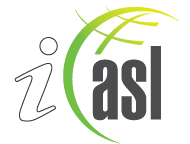

|
|
IASL Research Abstracts: 107
Findings: An alternative model of a school-community library was developed to better meet the needs of a rural tribal community in South Africa. Success depended on securing community membersą support, acceptance, and involvement.
Abstract: Substantial backlogs in public and school library services in South Africa, especially in the previously disadvantaged, remote rural areas, compel library authorities to explore alternatives, and more cost-effective ways of library service delivery. This paper describes a South African study which investigated the variants of the school-community library model worldwide, with the aim of defining a South African prototype, which would satisfy the needs of a rural, tribal community. The paper also discusses how this prototype is currently being piloted in a rural, tribal area in the Mpumalanga province by forging partnerships with various stakeholders. See:
Le Roux, S. and Hendrikz, F. (2003). Rendering a comprehensive school and community library service to remote rural communities in South Africa by forging partnerships. In S. Zinn, G. Hart and E. Howe (Eds.) School libraries: Breaking down barriers (pp.258-269). Seattle: International Association of School Librarianship.
Subject Categories: 1, 2, 7, 11
